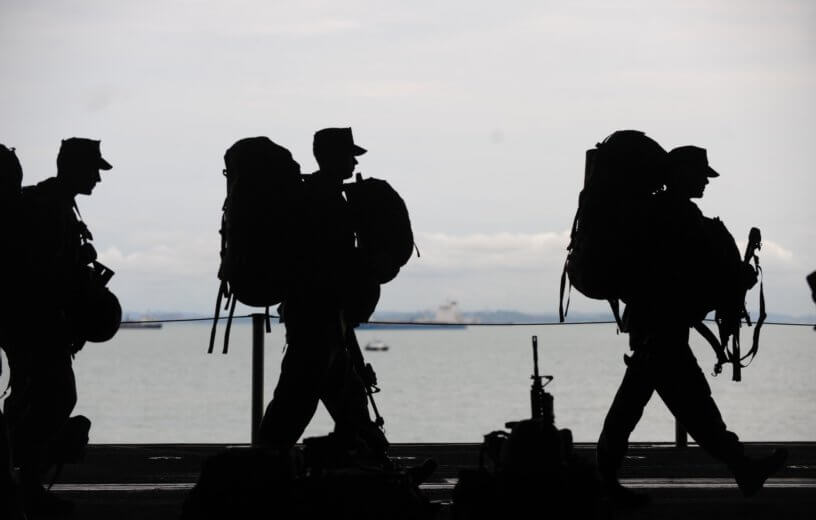STORRS, Conn. — A sobering study examining a connection between veterans and suicide found that returning soldiers who are married or living with a partner are more likely to take their own lives than single soldiers.
Research conducted at the University of Connecticut also showed that older, married, female soldiers carry the highest risk of suicide.
The surprising findings run counter to many assumptions about veterans and their families. Many might assume that those who have a family of their own, or at least a live-in significant other, would have more to live for and therefore carry less of a suicide risk. But the study’s authors, working in conjunction with the U.S. Department of Veterans Affairs, found that the transition back to domestic life causes undue amounts of stress in many veterans.
“It certainly makes sense when you think about it,” said co-author Crystal Park, a UConn psychology professor, in a school release. “There are added pressures that come with maintaining a relationship and meeting household needs. People may have expectations when they’re away and when they return it’s not what they imagined, the romance may not be there. It’s just the daily grind and that can drive up stress levels and increase feelings of despair.”
The findings are based on the Survey of Experiences of Returning Veterans (SERV) responses of 772 recently-returned veterans. SERV is a longitudinal study sponsored and administered by the VA department. The study was originally put together to understand the experience of many female soldiers entering the military in record numbers in recent years.
Women made up 40 percent of the respondents — more than twice the overall percentage of U.S. military veterans who are women. Most respondents had served in the Army and toured the Middle East, and three-quarters were exposed to combat.
“A lot of the people who went over there weren’t active duty military,” added Park. “They were people who signed up for something but probably never anticipated they would be going to Afghanistan to fight the Taliban. They had jobs. They had kids. They had a life that was much different than someone who chooses to enlist in the military.”
The survey showed that one in five veterans admitted having suicidal thoughts at some point, with 6 percent having attempted it in the past or considering it at the time of the survey. The youngest vets — those in their 20s — were less likely to have contemplated suicide, compared to those in their 40s and 50s.
Faith didn’t seem to play a role in bringing uplift to veterans. Positive attitudes toward one’s spirituality and religion did not reduce suicidal tendencies, the survey showed.
“This suggests that people are experiencing some profound spiritual struggle over and above any depression they might have,” said Park. “What people experience, what they do, and what they witness can have profound negative effects on them when they come back.”
The full study was published December 8, 2017 in the Archives of Suicide Research, a publication of the International Academy of Suicide Research.
